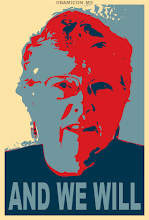Beyond the Reservation
MASHANTUCKET PEQUOT INDIAN RESERVATION, Conn. — With hundreds of millions of dollars in annual profits flowing in from their gambling business, the Mashantucket Pequots first floated the idea of building a large amusement park. But those plans were shot down by neighbors already unhappy with the huge Foxwoods casino in their midst.
Some Indian tribes are also winning contracts to manage others’ casinos for a cut of the profits.
The tribe then bought into a ferry-building business in hopes of diversifying its holdings, but that only provided a costly lesson in the dangers of “building Cadillacs for a Chevy market,” said Michael J. Thomas, the tribe’s chairman.
So maybe it shouldn’t be surprising that Pequot tribal leaders would choose to stick to what they know best. In doing so, however, they have moved far beyond their reservation here in eastern Connecticut, scouring the nation for new market opportunities in gambling just like any other large casino operator.
That is how the Pequots came to be one of the main investors in a large casino-resort being considered by officials in south-central Kansas; earlier this year, Kansas joined the ever-swelling list of states legalizing casino gambling.
That is also how the tribe, which has operated one of the world’s most profitable casinos since 1992, ended up as the prime mover behind a $500 million slot parlor and hotel planned to open in Philadelphia by the end of 2009, beating out Trump Entertainment Resorts, Pinnacle Entertainment and several other established gambling companies.
The Pequots are hardly alone. Last November, the Mohegan tribe, which operates the giant Mohegan Sun casino hotel not far from here, opened a slot parlor in Pennsylvania. At about the same time, the Seminole Tribe of Florida paid $965 million to buy Hard Rock International, the rock-’n’-roll-themed chain of restaurants, hotels and casinos.
“This is bringing tribes into uncharted territory,” said Steven Andrew Light, co-director of the Institute for the Study of Tribal Gaming Law and Policy at the University of North Dakota. He called the moves a “harbinger for a new wave within the Indian gaming world.”
The Mohegan and Pequot tribes are also competing with traditional gambling companies like Harrah’s on a second front: the lucrative management deals that give operators a large cut of the profits in exchange for managing casinos on behalf of tribes with less experience in the gambling business.
For several years, Indian country has been defined by a new brand of leader as well versed in the nuances of casino management and corporate accounting as tribal politics. But now add to their ranks Native American elected officials who call to mind nothing so much as aggressive corporate chief executives using the profits generated by one property to open others.
“My answer to your question of why is, Why not?” said Mr. Thomas, the Pequot chairman.
Other tribes are certainly watching the trend with keen interest. Bruce Bozsum, chairman of the Mohegan tribe, said he had heard from many of his fellow tribal leaders, as well as conference organizers, interested in hearing the details of his tribe’s off-reservation economic activities.
“That’s all people want to talk about,” Mr. Bozsum said.
The first effort to move gambling operations off-reservation dates to 2000. That is when the Sault Ste. Marie Tribe of Chippewa Indians, which was already operating several casinos in the Upper Peninsula of Michigan, opened the Greektown Casino in Detroit, a commercial casino well away from their reservation land.
Greektown generated $351 million in revenue last year. Adding that to revenues from its other casinos, the Chippewa have used the money to expand their land holdings while building health centers and offering other services for the tribe’s 29,000 members.
More recently, the Mohegan and Pequot tribes — fierce rivals that for years have operated wildly successful casinos only a short drive from one another — have taken steps to expand their gambling operations off-reservation. When Pennsylvania passed a law in 2004 authorizing up to 61,000 slot machines at 14 sites around the state, both tribes jumped at the chance to diversify their operations.
Under the Pennsylvania plan, horse racing tracks were automatically granted a slot license. So the Mohegan Tribal Gaming Authority, a corporation wholly owned by the tribe’s roughly 2,000 members, spent $255 million to buy the Pocono Downs, a harness racing track 110 miles northwest of Philadelphia.
Renamed the Mohegan Sun at Pocono Downs, the property generated $55 million in revenue in the second quarter of 2007, though it is only a temporary facility while the tribe builds a more permanent home that will accommodate 2,500 slot machines, or more than twice as many as the present site.


Links to this post:
Create a Link
<< Home